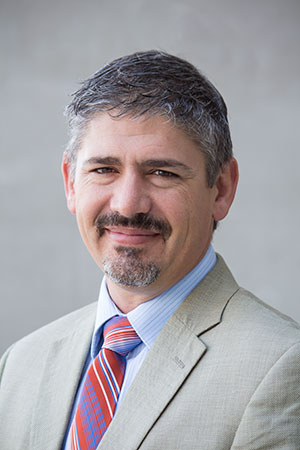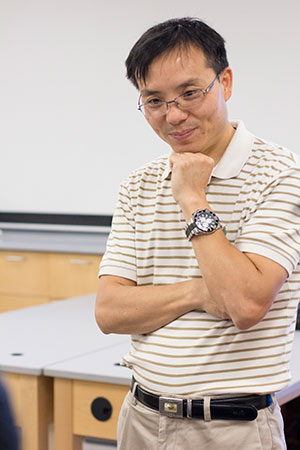
The University of California, Merced, just became part of a massive, five-year, multi-million-dollar international research consortium that tackles water-related aspects of energy production and use.
 The campus will receive $1.5 million of the $50 million grant that will form the Clean Energy Research Center for Water Energy Technologies (CERC-WET) consortium. Half of the $50 million comes from the U.S. Department of Energy and its partners, UC Irvine and the Lawrence Berkeley National Laboratory, and the other half from the Chinese Ministry of Science and Technology and its consortium partners.
The campus will receive $1.5 million of the $50 million grant that will form the Clean Energy Research Center for Water Energy Technologies (CERC-WET) consortium. Half of the $50 million comes from the U.S. Department of Energy and its partners, UC Irvine and the Lawrence Berkeley National Laboratory, and the other half from the Chinese Ministry of Science and Technology and its consortium partners.
UC Merced is joined in the consortium by UC Berkeley, UC Irvine, UC Davis, UCLA, Lawrence Berkeley National Laboratory and the Massachusetts-based Stockholm Environment Institute-U.S. Center.
“This grant is indicative of the high-quality research coming from UC Merced,” said Professor Joshua Viers, the principal investigator for UC Merced. “It shows that our work and our faculty members are being recognized by our peers and national funding agencies.”
Viers co-leads the UC Water Security and Sustainability Research Initiative (UC Water), focused on strategic research to build the knowledge base for better water resources management. This UC Merced program and its focus on the energy-water nexus served as a catalyst for the most recent grant, he said.
Viers said UC Merced’s portion of the research will draw upon some of the expertise in UC Water and will focus on two areas: hydropower and river management, and thermoelectric cooling.
Some of Viers’ research explores the impacts of climate change on hydropower.
 “We are studying the trade-offs between energy production — hydropower — and flood protection, recreational opportunities, irrigation and downstream water-quality objectives,” Viers said. “It is becoming more challenging to meet hydropower demands as well as all other important downstream needs.”
“We are studying the trade-offs between energy production — hydropower — and flood protection, recreational opportunities, irrigation and downstream water-quality objectives,” Viers said. “It is becoming more challenging to meet hydropower demands as well as all other important downstream needs.”
Professor Yanbao Ma, who runs the Water and Energy Lab at UC Merced, is working to design environmentally friendly cooling systems. Both professors are with the School of Engineering.
“We will develop new breakthroughs in air-cooled condensation methods to reduce water use in thermoelectric power plants,” Ma said. “This will not only make energy production more efficient, but we will save water too.”
The consortium, announced by the U.S. Department of Energy, is one of several technical tracks under the U.S.-China Clean Energy Research Center, which was launched in 2009 by President Barack Obama and former Chinese President Hu Jintao to accelerate the transition to an efficient, low‐carbon economy while mitigating the long‐term threat of climate change.
In the coming months, members of the U.S. consortium will develop joint work plans with members of the Chinese consortium.
Besides the research, the grant will support expanded graduate student education in these fields, Viers said. UC Merced’s Office of Research and Economic Development and Graduate Division are each contributing funds for graduate student fellowships. In total, this project will support up to three graduate students and three postdoctoral researchers per year.
Lorena Anderson

Senior Writer and Public Information Representative
Office: (209) 228-4406
Mobile: (209) 201-6255






